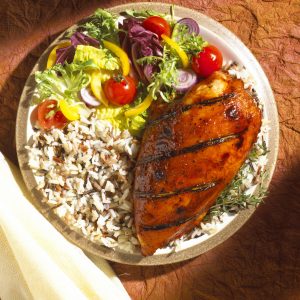 Regulating VLDL cholesterol levels can help prevent heart disease and fatty liver disease. For proper liver function, VLDL cholesterol must be in perfect balance, not too high or too low. In his research, Dr. Shadab Siddiqi set on to find an easier way to regulate VLDL.
Regulating VLDL cholesterol levels can help prevent heart disease and fatty liver disease. For proper liver function, VLDL cholesterol must be in perfect balance, not too high or too low. In his research, Dr. Shadab Siddiqi set on to find an easier way to regulate VLDL.
Dr. Siddiqi uncovered a protein known as Small Valosin-Containing Protein (SVIP). This protein regulates the amount of VLDL (very low density lipoproteins) that gets released into the bloodstream. SVIP contains a binding site for myristic acid, a saturated fatty acid that is found in butterfat and animal fats, especially red meat. The researchers found that only myristic acid activates SVIP to secrete excess VLDL into the blood. Without myristic acid, the liver did not secrete VLDL, which resulted in fat buildup in the liver, potentially leading to cancer.
Advertisement
Dr. Siddiqi explained, “These findings suggest that our diet modulates the complex molecular processes that have profound effects on our health and lifespan. The challenge will be in creating a therapy that does not impact the liver’s many other functions.”
Balancing VLDL cholesterol levels with diet
Below you will find some effective diet-changing tips to consider in order to better balance your VLDL cholesterol.
- Lose weight.
- Cut out sugar – the American Heart Association (AHA) recommends only five percent of your daily calories come from added sugar.
- Increase your fiber intake.
- Limit fructose – fructose is a type of sugar that can contribute to high triglyceride levels.
- Eat a moderately low-fat diet – a moderately low-fat diet has been shown to be more effective for lowering triglyceride levels, compared to a strict low-fat diet. The AHA recommends that 25 to 35 percent of your daily calories come from fat.
- Be mindful of the fat you eat – there are good fats and bad fats. Avoid saturated and trans fats, and consume more monounsaturated or polyunsaturated fat typically found in olive oil, for example.
- Increase your fish intake – go for salmon and sardines.
- Limit alcohol.
